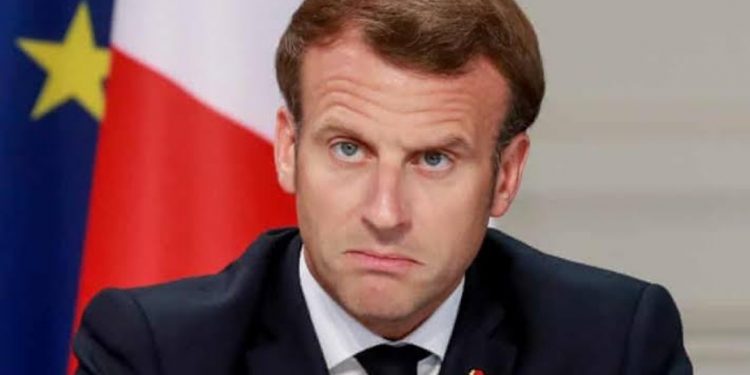By Oyintari Ben
French President Emmanuel Macron was on Monday met with widespread protests as he tries to move past the extremely unpopular decision to raise the retirement age, which has sparked a wave of social unrest.
Following his confrontation with labour unions, widespread strikes, and his decision to raise the retirement age by two years to 64, Macron’s popularity has plummeted to almost record lows, which were reached during the “Yellow Vest” crisis.
The action crystallised resentment against a president whom many people saw as unconcerned with their everyday struggles; as a result, when Macron encounters people on the street, he is met with jeers, pot banging, and heckling.
More than a million people are expected to march through towns and cities on Monday, according to unions.
The hard-left CGT union’s leader, Sophie Binet, declared that May 1st would mark a turning point. It will serve as a statement that “until this (pension) reform is withdrawn, we will not move forward.”
The leader of the reform-minded CFDT union, Laurent Berger, claimed that Macron’s administration was deaf to the demands of one of the most potent social movements in recent memory. But he insisted on Sunday that the talks with the government were still ongoing.
According to Macron, the reform is necessary to keep one of the most generous pension systems in the industrialised world operating profitably.
A French man typically stays longer in retirement than those in other OECD countries, and French pension payouts as a percentage of pre-retirement earnings are more significant in France than elsewhere.
The money, according to the unions, can be found somewhere else.
Due to a lack of cross-party support, Macron’s government, which lacks a functioning majority in parliament, forced the pension law through without a final vote.
The rest of his reform plan, such as an employment bill requiring individuals receiving the minimum welfare benefit to work or receive training for 15-20 hours per week, could be complicated by a hardening of the political opposition.
According to Fitch, a potential political deadlock and societal unrest threatened Macron’s plan, which on Friday lowered France’s sovereign credit rating by one notch to ‘AA-‘.




































